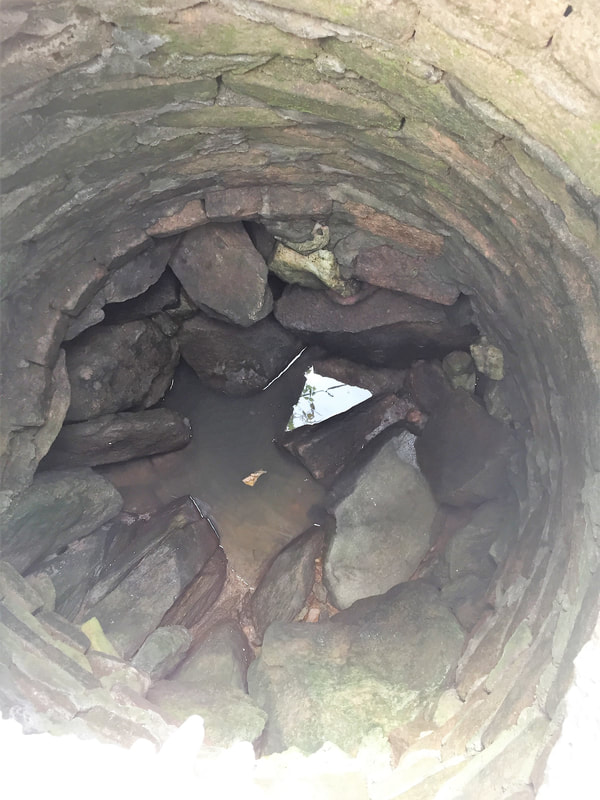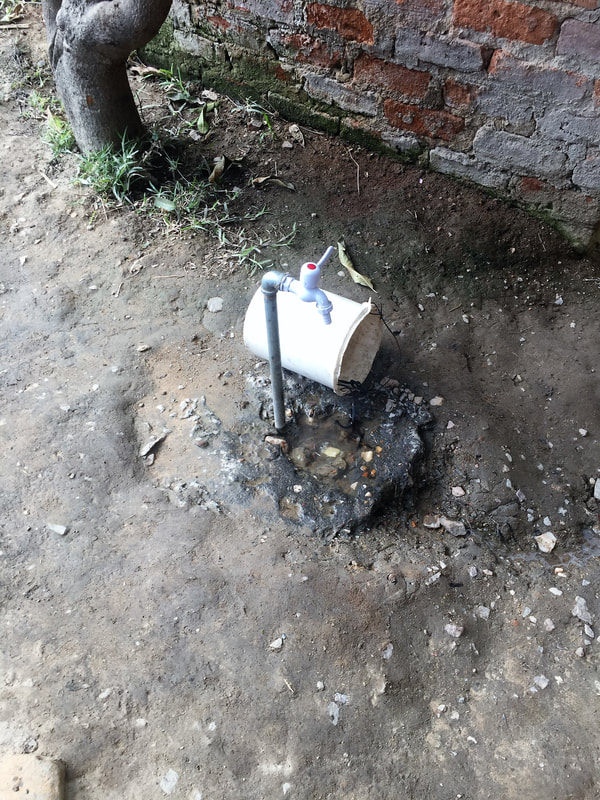Mai Tamoline
| Out of all the problems in Zimbabwe, water is one of the biggest. Most people go to a river or some type of well in order to draw water. However, in towns, there is city water, which isn't clean, but is an option. Mai Tamoline has a well next to her house (below). This is completely different than the well that we have, which has proper piping and an electric pump, that is connected to the plumbing in our house. Mai Tamoline's is just a hole in the ground. It's not very deep and her outhouse happens to be just to the side of where the picture was taken. I can't imagine the contamination that has taken place. |
| This has always been her water source (no running water). Since she is going to be rearing chickens, she wanted to make sure that she had consistent water nearby. She asked us if we could help her get connected to city water. We've only done this once or twice, but we offered her an interest-free loan in order to do all the necessary connections for her to be able to receive city water. Below you can see a picture of the single faucet, which is outside her house (which is what most of the women we work with have). We wrote a contract and she won't need to pay anything back until the second month of her chicken business. She will still need to boil the water when she drinks it, but she now has plenty of water for when the chickens arrive. |
Mai Maka
| Mai Maka is the least well-off financially out of the women with whom we work. She and her husband have been renting a room in the high density area, but they have been building a home in an area designated for low/no-income people. This section of land is organizationally-run and they had to pay something for their lot, but much less than it was worth. The chicken coop (to the right) is next to their new home (below). Her new home is one room (not one bedroom, just one room). There are community bathrooms for all who live in this area. She has no electricity or water hookups. As you can see from the |
| picture, the tin roof is not complete, there is no door for the home, and it does not have a window. While we were visiting, she told us that she was being forced to move out of the room where they had been staying, due to the homeowner doing some maintenance. In two days time, she and her family of 5 were going to move into this one-room house. As it is the middle of winter here, she asked us if there was anything we could do to help her with the roof and door. She had a door, but didn't have cement to install it. What do you say when you're standing in a dusty, dirty, partially finished room and it's the middle of winter and two adults and three children will be sleeping here from now on? We told her that we would loan her the money for the extra materials. After this, we went straight to the store, where we purchased the needed two sheets of tin roofing and two bags of cement. Just like with Mai Tamoline, we wrote up a contract and she will pay us back, interest-free, after the second month of her chicken business. Upon arriving home afterwards (and really after our visits to each of the ladies), Yolanda and I couldn't help but feel an overwhelming sense of blessing for all that we have been given. While we are abundantly aware of the sacrifices we have made and the conveniences we have given up to live in Zim, we were both feeling an immense amount of gratitude and thankfulness that we have every need met and more. We have indoor plumbing, electricity, food on the table, and warm blankets to be under at night. Thank you Jesus! |







 RSS Feed
RSS Feed